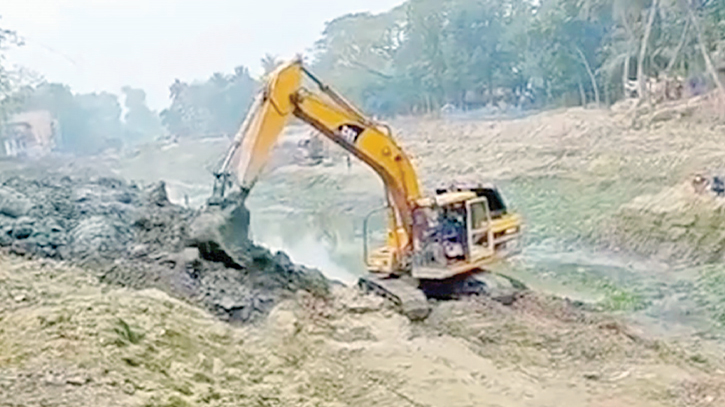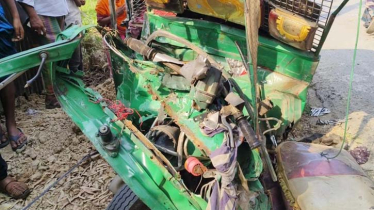
Photo : Messenger
Excavation and dredging of the five-kilometer stretch of Benapole Hakar River, spanning from Sadipur Checkpost of Benapole to Narayanpur in Jashore along the Indian border, has recommenced after a prolonged hiatus.
After a prolonged delay, the Water Development Board initiated the excavation of the Hakar river bordering Jessore last Saturday, much to the delight of Benapole residents.
After 68 years, the Water Development Board resumed excavation work in January last year. The Hakar River, linked to India's Ichamati River, was encroached upon by influential figures on both sides in 1955. Subsequently, in 1962, with the aid of land officials, the river was privatized. However, due to legal complications arising from local influencers, the excavation was halted multiple times before resuming after a year.
Initially, a five-kilometer stretch from Sadipur Checkpost in Benapole to Narayanpur will be excavated. Saidur Rahman, Deputy Assistant Engineer of Water Development Board Jessore, stated that the remaining 22 kilometers will be gradually dredged and reconnected with various water bodies.
The dredging aims to preserve biodiversity, protect the environment, and benefit farmers by mitigating flood risks. It is hoped that the removal of encroachments such as buildings, fish enclosures, and ponds will restore the river's natural flow.
The estimated cost for excavating the initial five kilometers is around 4.48 crore taka. The remaining distance will be excavated gradually, with a contractor company from Cox's Bazar expected to complete the work by June. Despite legal challenges, the majority of locals support the river's excavation, anticipating benefits such as reduced waterlogging and improved drainage.
The Hakar River, crucial for dewatering the Benapole land port located 200 yards away, connects with several rivers in India. Historically, it facilitated trade between the two countries. However, over time, illegal occupation and commercial activities have severely diminished its width, with influential figures constructing ponds and fish cages, obstructing its flow.
To restore the river's heritage and revive economic activities, freeing it from encroachments is imperative. The commencement of excavation work has brought satisfaction to the people of Benapole, signaling a positive step towards reclaiming their river.
Messenger/Faria








